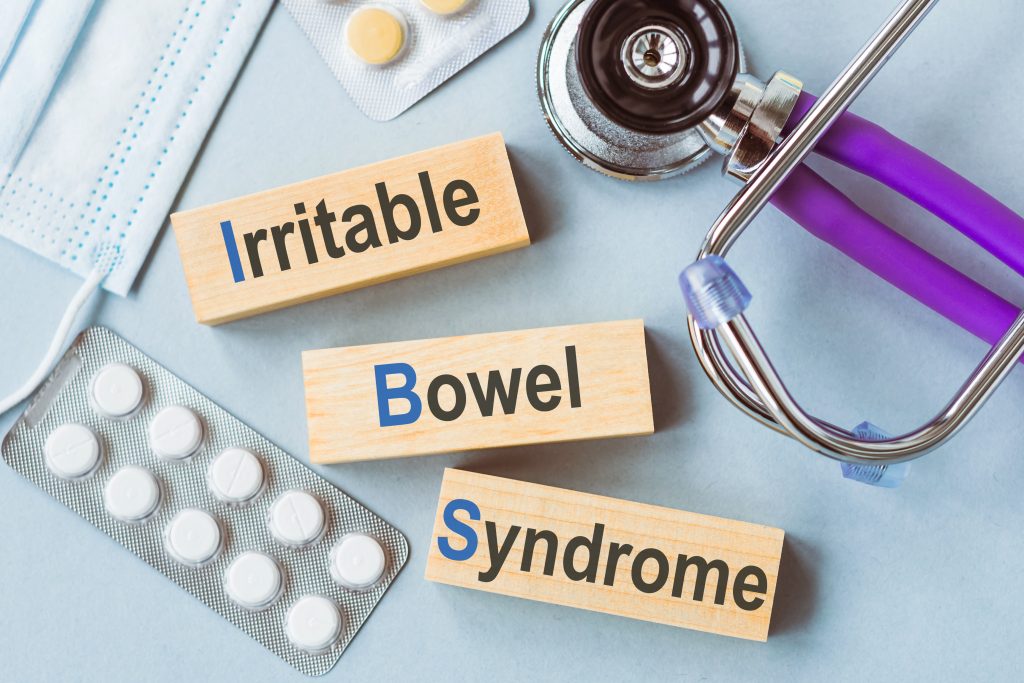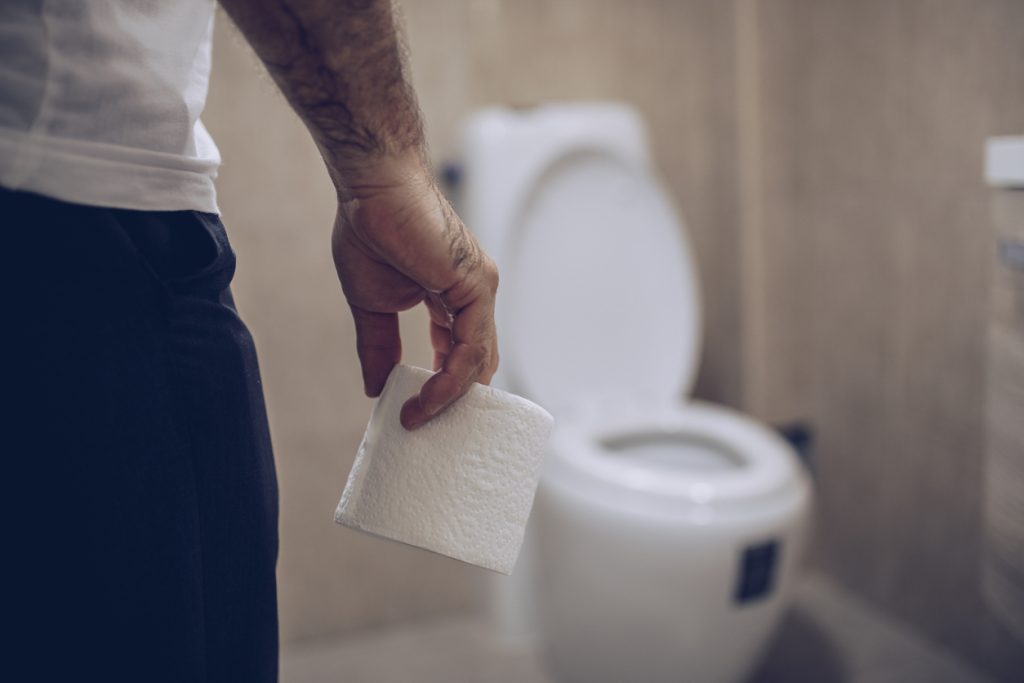Identifying and avoiding common IBS triggers is essential for managing flare-ups and improving overall quality of life. Irritable Bowel Syndrome (IBS) is a digestive disorder causing symptoms like cramping, bloating, diarrhea, and constipation.
What Are the Symptoms of Irritable Bowel Syndrome (IBS)?
IBS symptoms vary from person to person, but the most common include:
- Abdominal pain or cramping: Pain is usually in the lower abdomen and is often relieved after a bowel movement.
- Bloating and gas: People with IBS often experience bloating, especially after meals.
- Diarrhea or constipation: IBS can alternate between diarrhea-predominant (IBS-D) and constipation-predominant (IBS-C) symptoms.
- Mucus in stool: Some people with IBS may notice mucus in their stool, which can be a sign of digestive issues.
What Are the Most Common IBS Triggers?
Several factors can trigger IBS symptoms, but the most common include:
- Dietary triggers: Certain foods can irritate the gut and cause IBS flare-ups. High-fat foods, processed foods, and artificial sweeteners are common culprits. High-FODMAP foods like onions, garlic, and legumes can also trigger symptoms.
- Stress: Stress is a major factor in worsening IBS symptoms. The gut-brain connection plays a role in how stress impacts digestive function, leading to cramping, bloating, or changes in bowel movements.
- Hormonal changes: Many women report worsening IBS symptoms during their menstrual cycle due to hormonal fluctuations.
- Infections: A history of gastrointestinal infections or small intestinal bacterial overgrowth (SIBO) can increase IBS symptoms.
- Allergens / Histamines: Patients with IBS have been shown to have an increased number of histamine receptors in their GI system.
How Can Diet Affect IBS Symptoms and Flare-Ups?
Diet is one of the biggest factors influencing IBS triggers. Certain foods can irritate the digestive system, causing bloating, gas, and changes in bowel habits. People with IBS should avoid:
- High-fat foods: Fried foods and greasy meals can slow digestion, causing discomfort and bloating.
- Dairy: Many people with IBS are lactose intolerant, and consuming dairy products can lead to gas and diarrhea.
- Caffeine and alcohol: Both can irritate the gut, leading to diarrhea or discomfort.
- High-FODMAP foods: Foods like garlic, onions, beans, apples, and pears can cause bloating and gas due to their fermentable carbohydrates.
- Artificial sweeteners: Sorbitol, mannitol, and other artificial sweeteners can cause digestive upset.
- Stay hydrated: Drinking plenty of water helps improve digestion and prevent constipation.
- Eat smaller, more frequent meals: Large meals can overwhelm the digestive system. Eating smaller portions more frequently helps reduce the intensity of symptoms.
How Can Stress Management Affect IBS Symptoms and Flare-ups?
Stress management plays a crucial role in preventing IBS triggers. The gut-brain connection means that stress and anxiety can directly impact digestive health, often exacerbating symptoms like cramping, bloating, and irregular bowel movements. By incorporating stress-reducing techniques, individuals can significantly improve their quality of life.
- Mindfulness and meditation: Practicing mindfulness or meditation can help calm the mind and reduce stress levels, making IBS symptoms more manageable.
- Regular exercise: Engaging in activities like yoga, walking, or swimming can boost mental well-being and help regulate digestive function.
- Deep breathing exercises: These can lower stress levels by promoting relaxation and reducing anxiety, which is beneficial for gut health.
- Time management: Planning and organizing daily schedules can help reduce stress by lessening the feeling of being overwhelmed.
- Therapy or counseling: Talking to a mental health professional can provide support and strategies for managing stress and its impact on IBS.
- Progressive muscle relaxation: This technique involves tensing and then relaxing each muscle group, which can aid in stress relief and improve IBS symptoms.
How Can Sleep Quality Affect IBS Triggers and Flare-ups?
Sleep quality has a profound impact on IBS symptoms and flare-ups, as poor sleep can exacerbate abdominal pain, bloating, and irregular bowel habits. The relationship between sleep and digestive health is reciprocal; IBS symptoms can disrupt sleep, and inadequate rest can intensify these symptoms. Individuals with IBS often report more severe symptoms after nights of disrupted sleep, indicating the necessity of good sleep hygiene in managing the condition.
- Establish a consistent sleep schedule: Go to bed and wake up at the same time every day, even on weekends, to regulate your body’s internal clock.
- Create a relaxing bedtime routine: Engage in calming activities such as reading or taking a warm bath to signal your body that it’s time to wind down.
- Limit screen time before bed: Avoid electronics like phones, tablets, and computers at least an hour before bedtime, as blue light can interfere with melatonin production and disrupt sleep.
- Optimize your sleep environment: Ensure your bedroom is calm, dark, and quiet. Use blackout curtains, earplugs, or a white noise machine to create an ideal sleep setting.
- Watch food and drink intake: Avoid heavy meals, caffeine, and alcohol in the hours before bedtime, as they can affect sleep quality.
- Exercise regularly: Regular physical activity can facilitate better sleep, but aim to finish exercising at least a few hours before bed to prevent sleep disturbances.
- Manage stress: Practice stress-reducing techniques during the day, such as mindfulness or journaling, to prevent stress from impacting your sleep.
- Ensure mattress and pillow comfort: Invest in a supportive mattress and comfortable pillows to enhance sleep quality and reduce physical discomfort.
Remember, the usual IBS triggers come when you are not taking care of yourself. Please see your primary health physician for more options if you need support keeping yourself healthy.
Looking for fast and effective relief for your digestive discomfort? Visit Get Relief Rx today to explore proven solutions to ease your symptoms and improve your gut health. Click here to start feeling better now!




